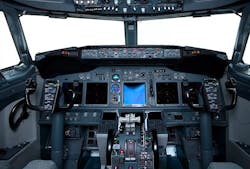Deadly Boeing crashes raise questions about commercial aircraft avionics automation
WASHINGTON – Two Boeing 737 Max 8 jets, a variant of the world’s most popular jetliner, crashed within six months of each other in a rate of failure that raises questions about the airplane’s cockpit automation. The Verge reports. Continue reading original article
The Military & Aerospace Electronics take:
18 March 2019 -- Preliminary data from the first of the crashes, Lion Air Flight 610, suggests that the automated system forced the plane into a steep dive soon after takeoff. At least half a dozen pilots have complained about unexpected nose dives from the system.
To be sure, automation is widely used in commercial avionics and has been praised for making the skies much safer. But there are growing concerns among pilots and safety experts that the industry is relying too much on automation, especially overly complex systems.
Boeing, meanwhile, is facing questions about its decisions to withhold information from regulators about the anti-stall technology implicated in the Lion Air crash.
Related: Sikorsky to perfect cockpit automation kits for fixed-wing aircraft and helicopters
Related: Rockwell to Change Name to Rockwell Automation after Rockwell Collins spinoff
John Keller, chief editor
Military & Aerospace Electronics
Ready to make a purchase? Search the Military & Aerospace Electronics Buyer's Guide for companies, new products, press releases, and videos

